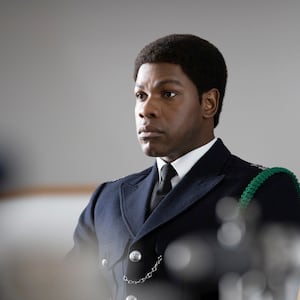Not too long ago, I was speaking to an audience at a prominent and highly regarded law school. I was gratified by the sight of this audience: about an equal number of women and men, and a rainbow of different ethnicities—Black, Hispanic, Asian.
It was the kind of audience I never saw decades earlier when I was still heading the ACLU and we were fighting to end what had been the historical exclusion of women and people of color at law schools and universities.
The subject we were discussing was speech rights and whether it was ever appropriate, much less constitutional, to prohibit speech because its content was bigoted or hateful.
I was surprised to learn that many in the audience self-identified as “progressives” and believed that it was both desirable and constitutional to ban what they called “hate speech” because, they claimed, such speech was a barrier to social justice, to ending the layers of prejudice against women and people of color that had resulted, and still results, in invidious discrimination and subjugation.
I certainly had no quarrel with their passion to end such discrimination and subjugation: I had spent most of my adult life fighting to do just that, and agreed that although much progress had been made, we were still far away from the day when we could declare that fight definitively won.
WATCH AN EXCLUSIVE CLIP FROM ‘MIGHTY IRA’:
But I was baffled and surprised that so many in the audience believed that the right to freedom of speech and the cause of social justice were antagonists, and that in order to help attain social justice it was necessary to tolerate, indeed to advocate, bans on speech.
For me, social justice and freedom of speech were not antagonists, but crucial allies that depended on each other.
Historically in the United States, every fight for social justice began with free speech, and depended on the right to speech to initiate and sustain their movement.

Ira Glasser in Mighty Ira
required viewingIn the early years of the 20th century, for example, the nascent labor movement critically required—and often in the early days did not enjoy—the right to meet, to leaflet, to demonstrate, to picket in order to convert their powerlessness into success against oppressive employers.
During the same period, the movement to end lynching of Black people, by courageous advocates like Ida B. Wells, totally depended upon freedom of speech and the right to publish and spread the word about the epidemic of lynchings in the land, and to gather and build opposition to it.
In 1916, Margaret Sanger, the founder of Planned Parenthood, was arrested in New York City nearly every week for distributing informational leaflets on birth control to women victimized and, yes, enslaved by unwanted pregnancies. The beginning of the reproductive rights movement required freedom of speech the way a new plant requires water and sunlight.
And of course in our own time, the civil rights movement that finally resulted in laws that ended the dominion of Jim Crow in hotels and restaurants and swimming pools and public toilets, on juries and in employment and housing and voting, could not have flourished or succeeded without the First Amendment to protect their efforts to call attention to the abuses of skin-color exclusions and build the support needed to end them.
When in 1955, Rosa Parks sat down in a seat reserved for whites on a bus in Montgomery, Alabama, and a then-unknown young Baptist minister named Martin Luther King, Jr. stood up to support her by organizing a boycott of those buses, none of that would have been possible without the protection of the First Amendment.
And the same was true of the countless other demonstrations, sit-ins and marches during the years that followed, including the one across the Selma bridge that helped build support for the Voting Rights Act of 1965.
That is why the hero of that march in Selma, the recently departed and much revered John Lewis, was a fierce advocate for freedom of speech. As Lewis said: “Without freedom of speech and the right to dissent, the Civil Rights movement would have been a bird without wings.”
And that’s also why Martin Luther King, Jr. was such a strong supporter of the First Amendment. As one of his top lieutenants, Hosea Williams, once explained to a national television audience, he supported the right of the Klan to march peacefully because, he said, if he allowed the government the discretion to ban the Klan in Atlanta on Monday, it would use that power to ban him and his efforts to register Black people to vote in rural Georgia the rest of the week and forever after. The first target of the government’s restriction of speech is never the last.
And that’s the crucial point about First Amendment rights: If we allow the government the discretion to ban hateful speech, the only important question is who gets to decide what’s hateful. We can be sure it won’t be those who are oppressed, nor their advocates. It will be whoever has political power. And that will too often include people like Joe McCarthy, Richard Nixon, Rudy Giuliani and, yes, Donald Trump and William Barr. Why would Black Lives Matter protesters demonstrating for social justice want to entrust their speech rights to Donald Trump?
The speech that social justice advocates hate is not the same as the speech that Donald Trump hates. And if it became legal to ban hateful speech, it would be Trump and people like him, not social justice advocates or people like me, who would most often be in a position to decide whose speech to ban.
Speech restrictions are like poison gas: they seem like a good idea when you’ve got the gas and a deserving target in sight. But then the wind shifts and blows the gas back on you.
In the 1970s, in England, the National Union of Students succeeded in getting racist speech banned on university campuses. One of the groups supporting the ban was an organization of Zionists. A few years later, the same student association decided that Zionism was a form of racism, and banned Zionists from speaking on campuses.
The wind had shifted.
Mighty Ira will be released in virtual cinemas on Oct. 9 and available on Amazon, iTunes, and Google Play on October 23.


